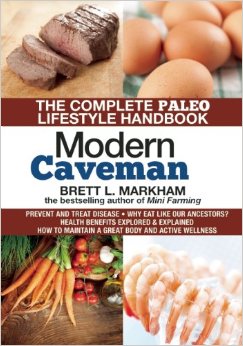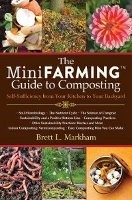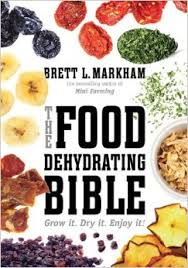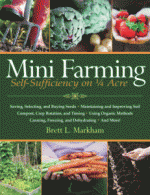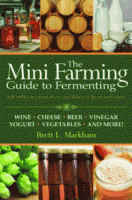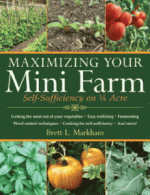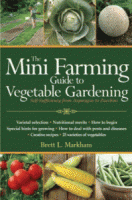A lot of the Mini-Farming books focus on vegetables, and rightly so. Growing your own food lets you take control of your health, and your grocery budget. But I want to emphasize the importance of growing herbs in your kitchen garden- or in containers right in your kitchen! This will give you a quick overview of growing culinary and medicinal herbs, and in the coming weeks we will focus on a few specific ones that I can’t live without.
For those of you that don’t know me, I’m Brett’s little sister, Carole. Like Brett, I was raised in the south, But I’ve had 27 years of gardening in Northern Minnesota to learn how to grow things in a climate that is not always easy to grow in. And, being of a more artistic mindset, instead of scientific, I like my garden to be a beautiful, sensory experience, not just practical. And I like my food to be the same.
One of the most exciting things for me as a mom, and now a grandmother, is watching and teaching children about gardening. And children love the sensory experience of a garden. Particularly the smells. And for me, it’s the scent of warm dirt and fresh lavender that takes the stress right off my shoulders when I get home from work. It’s the smell of the basil, rosemary and thyme that gets my creative juices flowing when I’m getting ready to cook dinner. It’s so much more fun, and delicious, to eat healthy, when you spice things up a bit with fresh herbs. They are so easy to grow ( mostly), and can help add endless variety to the preparation of what you are already growing in your garden.
THE BASICS: Herbs need about 6 hours of sun- so pick a spot that has that. I started with a couple small flower gardens and containers right outside my kitchen door.
MY FAVORITES: Basil, Thyme, Rosemary, Oregano, Parsley, Cilantro, Dill, Sage, Fennel, Savory, Bergamot, Mint, and Chives. These are the herbs I just can’t live without.
START FROM SEED: Don’t waste money buying plants. These all start from seed, and, if you aren’t using hybrid seeds that are sterile, these will actually self -seed if you leave one to go to seed at the end of the season, and the next spring you’ll have even more. ( except Rosemary- it doesn’t like non- Mediterranean climates so much)
USE CONTAINERS FOR: Mint and Chives. Mint is pretty invasive, and even the harshest Minnesota winters won’t kill it. I use a big old washtub for mine, and it keeps it from taking over. Watch out for chives, too- Don’t let those go to seed willy-nilly, or you will have them everywhere. Pick those beautiful flowers for a bouquet inside, then dry the seeds and put them only where you want them to grow.
FOR YOUR HEALTH: Some herbs get labeled culinary, some medicinal, but the truth is, all herbs are good for you. The ones that taste less pleasant get labeled medicinal, but that doesn’t mean the delicious ones have no value besides flavor. Just a few examples are:
Basil: Basil has been used for stomach problems and gas, to increase circulation, and to start the flow of milk after childbirth. Both Genovese and Holy Basil have been shown useful for eczema and acne. Holy Basil is so revered medicinally in Asia it almost deserves it own section. It has been shown to boost immunity and fight infection. The ointment I make for soothing and preventing infection after childbirth in cases of tearing or episiotomy includes Holy Basil, Thyme, Calendula and Comfrey.
Thyme: Thyme has been shown to lower blood pressure, help stop coughing and treat bronchitis. Its also high in Vitamin C and A and boosts immunity. I use it in various skin preparations and salves because it has anti- bacterial properties and has been shown to be effective in treating acne. It’s scent is a mood booster. The fresh oil from rubbing the leaves can even repel mosquitoes.
Sage: Sage has been shown to boost memory and brain function. Currently its properties are being studied more closely in helping improve function for Alzheimer’s patients.
Mint: Mint helps sooth unhappy stomachs. We use its scent to calm and relax, internally in herbal infused water to aid digestion, and in sachets to help fight nausea. It was a primary ingredient I used in the aromatherapy to help my daughter in labor.
Rosemary: Rosemary is a good source of iron, Calcium and vitamin B6. It is full of anti-oxidants and anti-inflammatory compounds. Rosemary helps with nasal congestion and allergies. Its scent is energizing and is said to help focus. Rosemary has long been used for its ability to aid in concentration, and it can help people struggling with ADHD symptoms. Some studies have shown it to be helpful in healing brain damage after stroke. I keep a live Rosemary plant on my desk, so its scent helps me focus when I have work to do.
Growing herbs is easy, and it can add so much zest to your life. Intoxicating scents invite you to cook, sooth you in your bath, or aid digestion or other troubles in a tea. Start growing herbs today, and I will add articles and recipes weekly to help you find great ways to use them!
Filed under: Uncategorized


